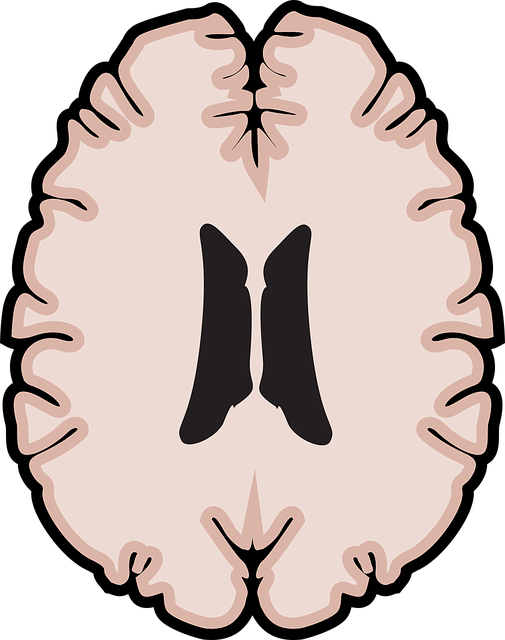Englewood Trauma Therapy offers a comprehensive approach to depression prevention and treatment, focusing on early intervention and cultural competency. They address root causes often overlooked in conventional care through evidence-based practices like Compassion Cultivation and Conflict Resolution. By teaching emotional regulation, self-care, and positive interpersonal skills, clients gain resilience, reduce stress, and break destructive patterns. Lifestyle adjustments, including exercise, balanced diets, sleep, and mindfulness techniques, significantly impact well-being. Building strong support networks through meaningful relationships combats loneliness and isolation, key risk factors for mental health decline. Englewood Trauma Therapy's holistic strategy combines traditional therapy with proactive coping mechanisms to enhance mental wellness and lead happier, healthier lives.
Depression is a prevalent yet treatable condition, and adopting proactive strategies can play a pivotal role in prevention. This article explores various avenues to safeguard your mental health, from understanding the nuances of depression to implementing effective interventions. We delve into the significance of recognizing signs early on and how Englewood Trauma Therapy offers specialized approaches for a robust defense against this illness. Additionally, we uncover lifestyle modifications, support network building, and other evidence-based methods to foster resilience and maintain well-being.
- Understanding Depression: Recognizing Signs and Symptoms
- The Role of Englewood Trauma Therapy in Prevention
- Lifestyle Changes for a Healthier Mindset
- Building a Support Network: Connecting to Prevent Isolation
Understanding Depression: Recognizing Signs and Symptoms

Depression is a complex mental health disorder that significantly impacts an individual’s daily life and well-being. Understanding depression involves recognizing its subtle signs and symptoms, which can vary from person to person. Common indicators include persistent feelings of sadness, loss of interest in activities once enjoyed, changes in appetite and sleep patterns, fatigue, difficulty concentrating, and, in severe cases, thoughts of self-harm or suicide.
Englewood Trauma Therapy emphasizes the importance of early intervention and seeks to empower individuals by providing tools for emotional regulation and stress management. By fostering cultural competency among healthcare providers through specialized training, they ensure a more nuanced approach to depression prevention and treatment, catering to diverse populations. This holistic strategy recognizes that addressing emotional regulation and incorporating effective coping mechanisms can be transformative in preventing the onset of depression.
The Role of Englewood Trauma Therapy in Prevention

Englewood Trauma Therapy plays a pivotal role in depression prevention by addressing underlying causes often overlooked in traditional mental health approaches. This therapy focuses on helping individuals process and heal from past traumatic experiences, many of which can contribute to chronic stress, anxiety, and ultimately, depressive disorders. By utilizing evidence-based practices such as Compassion Cultivation and Conflict Resolution Techniques, clients develop coping mechanisms that foster resilience and promote a deeper sense of well-being.
Through engaging in Englewood Trauma Therapy, individuals learn to navigate and manage their emotions more effectively, reducing the risk of relapsing into depression. This therapeutic approach encourages self-care, mindfulness, and positive interpersonal skills, all of which contribute to improved mental wellness. By addressing trauma head-on, clients can break free from destructive patterns and lead happier, healthier lives.
Lifestyle Changes for a Healthier Mindset

Englewood Trauma Therapy emphasizes lifestyle changes as a powerful tool to cultivate a healthier mindset and combat depression. Adopting simple yet profound habits can significantly impact mental well-being. Regular physical activity, for instance, releases endorphins that boost mood and reduce stress hormones. A balanced diet, rich in nutrients, supports brain health and overall functioning, fostering a positive outlook. Adequate sleep is another cornerstone; it allows the mind to rest, reset, and process emotions effectively.
Incorporating Mind Over Matter principles can transform one’s perspective. Positive thinking exercises and reframing negative thoughts promote self-esteem improvement, enabling individuals to challenge depressive thought patterns. Engaging in activities that evoke joy, spending time in nature, or connecting with supportive communities also fall under these lifestyle changes, ultimately contributing to a more resilient and optimistic mindset.
Building a Support Network: Connecting to Prevent Isolation

Building a strong support network is an essential component of depression prevention, as social connection can act as a powerful shield against loneliness and isolation, which are significant risk factors for mental health decline. At Englewood Trauma Therapy, we emphasize the importance of fostering meaningful relationships that provide comfort, understanding, and encouragement. This can include reaching out to family members, close friends, or joining community groups where individuals share similar interests or experiences. Such connections offer a sense of belonging and can serve as a valuable safety net during challenging times.
By actively engaging in social activities and maintaining open lines of communication, individuals can enhance their resilience and cope more effectively with life’s stressors. This proactive approach to building a support network complements traditional therapy methods, such as those offered at Englewood Trauma Therapy, in promoting well-being and preventing depressive episodes. Stress reduction methods and confidence-boosting techniques, when combined with robust social connections, create a holistic strategy for navigating mental health challenges proactively.
In tackling depression prevention, a multifaceted approach is key. By understanding the signs and symptoms, leveraging the benefits of Englewood Trauma Therapy for emotional healing, adopting healthy lifestyle changes, and fostering strong support networks, individuals can proactively safeguard their mental well-being. Combining these strategies empowers folks to navigate life’s challenges with resilience, ensuring a brighter and more balanced future.














